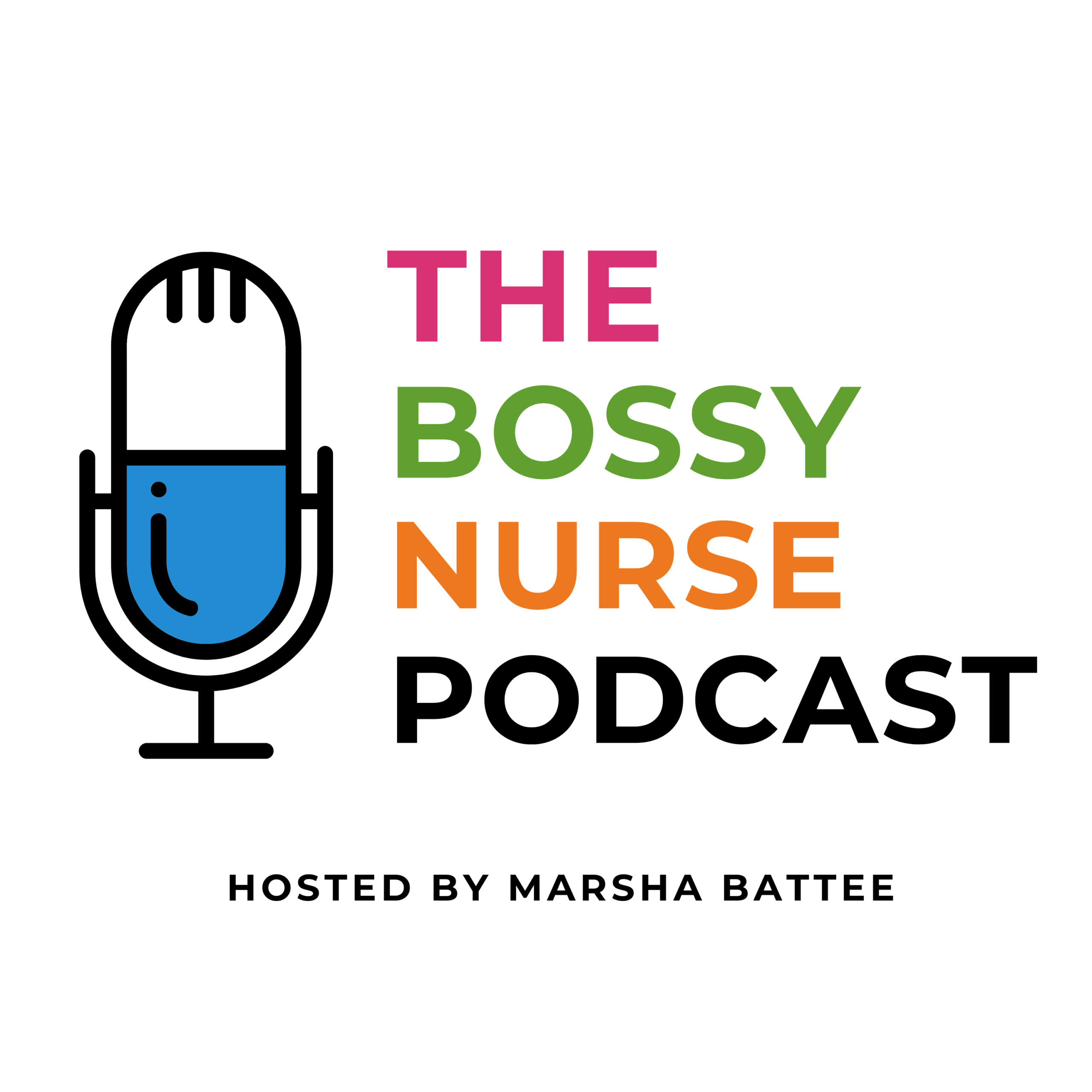Key Takeaways
- Career shifts don’t require huge leaps, just a few intentional tweaks based on what gives you energy.
- You don’t need another degree to grow. Mentorship, curiosity, and lifestyle-aligned changes matter more.
- Real growth is about creating space for what fulfills you, not just chasing credentials or climbing ladders.
Table of Contents
- Why the Nursing Ladder Isn’t a Straight Line
- What Career Growth Really Looks Like
- Real Nurses, Real Shifts
- Tiny Changes That Add Up to Big Progress
- No-Degree Growth Moves You Can Start This Week
- When You’re In Burnout But Want More
- Frequently Asked Questions
- Conclusion
1. Why the Nursing Ladder Isn’t a Straight Line

We were all sold the same idea: nursing is a clear ladder.
First you work bedside, then you get a BSN, then an MSN, then maybe you become a nurse practitioner. The truth? Many nurses won’t follow that linear path. Many grow laterally, diagonally, or even by stepping outside the traditional clinical space, like I have.
Career advancement doesn’t mean climbing someone else’s ladder. It means designing your own. One that works with your life, your energy, and what you actually enjoy doing. You may not want a leadership title or to go back to school. And that’s okay. You might want to shift your schedule, do fewer nights, have more autonomy, explore coaching, or even use your nursing skills in a new environment. Career advancement should feel like expansion, not pressure.
2. What Career Growth Really Looks Like
Career growth isn’t about chasing someone else’s version of success. It’s about gaining clarity, building confidence, and making small moves that feel aligned.
You don’t need to become a professor or write policy unless you want to. You don’t need an MBA or doctorate to feel like a leader. And you definitely don’t need to burn yourself out to “earn” your next opportunity.
Don’t get me wrong… getting an MBA or your doctorate is definintely a path for some, maybe even you.
But, just be mindful that growth can look different, like:
- Starting to feel excited for what’s next.
- Feeling seen and heard where you work.
- Doing work that challenges but doesn’t drain you.
You begin to feel more like yourself, not less.

3. Real Nurses, Real Shifts
Let’s look at a few examples of how nurses can make micro and macro career changes in ways that don’t involve overhauling their entire lives, inspired from examples of nurses I know:
- Nurse #1 goes from working full-time in a cardiac unit to taking on part-time hours and building a freelance writing side gig, writing content for nursing CEU providers. She didn’t leave nursing; she reshaped it.
- Nurse #2 transitions into a quality and safety role at the same hospital. She was curious about data, started asking questions, and eventually got pulled into meetings about chart audits. Her job title changed a year later.
- Nurse #3 moves from night shifts in med-surg to becoming a school nurse after tracking her sleep, anxiety, and relationships for six months. She didn’t need a certification. She needed a schedule that let her thrive.
- And in my example– I went from a burn/trauma step-down role to critical care and forensic nursing– to working a single nurse unit at the DOJ, the Director of Nursing at an assisted living start-up, and a travel nurse in interim leadership roles– to now working from home as a nurse consultant for one of the largest healthcare organizations on the west coast.
The point? None of us needed a massive, public “career pivot.” We just made quiet, focused adjustments that changed everything.
4. Tiny Changes That Add Up to Big Progress

If you’re craving change but don’t know where to begin, start here:
Track Your Energy
For one week, keep a simple log of your shifts. What tasks gave you energy? What drained you? This can clarify if it’s the role, the schedule, the people, or something else entirely. Check out my post on the Working Triangle.
Schedule a Curiosity Chat
Reach out to someone working in a role you admire. DM them on Instagram. Message them on LinkedIn. Nurses are generous with advice. You just have to ask.
Try a Low-Stakes Shift
If your unit allows it, pick up a shift in another department that piques your interest and learn about other specialties. Not to “network.” Just to observe. How do people talk? How do they feel? Can you imagine yourself there?
Set a 30-Day Growth Goal
Pick one mini-move and actually do it:
- Sign up for a certification course
- Apply for a per diem role
- Read a book outside of nursing (try a book on shifting mindset)
- Ask to attend one leadership meeting, just to observe
- Explore other opportunities outside of nursing– volunteer, take on a very part-time role to gain a new skillset, or join a non-profit board like I did
Growth doesn’t have to be dramatic to be effective.
5. No-Degree Growth Moves You Can Start This Week
Let’s be clear: You don’t need to enroll in another degree program unless it’s part of a plan that genuinely excites you. I’ve had varied experiences in nursing, including multiple leadership roles— with just my Bachelor’s degree.
Try this instead:
- Join or create a workplace committee. Even if it’s informal. Nurses who participate in their work environment, especially in staffing or education, get noticed.
- Propose a project. What do you wish worked better on your unit? Bring it up. Float pool onboarding? Night shift huddles? See what’s possible.
- Start a side project. Yes, even if it feels random. A blog, a wellness group, a podcast, a support circle for new grads. Use your interests to create something outside the pressure of your “career.”
- Audit your schedule. Do your shifts work for you, or are you working for them? Unpopular opinion– I hated 12-hour shifts (still do!) and would never go back. I’d much rather 5 days a week/8 hours a day– although now my schedule as a consultant is much more flexible than that. Requesting a 4×10, fewer weekends, or different holidays isn’t selfish, it’s smart.
6. When You’re In Burnout But Want More
You might be thinking: “I can’t even think about growth right now—I’m just trying to get through the week.”
Here’s what you can do instead:
- Create mental space. Cut one non-essential task from your plate this week.
- Journal (albeit, not my favorite, but I know others love it). Write down what you love and hate about your current work life. No editing. Be brutally honest: Is it the work… or the environment? There’s a difference. Which list is longer? If the “hate” is, it may be time to explore other opportunities.
- Use weekends or days off for healing, not planning. You’re allowed to rest before rebuilding.
- If your time is not purely your own (kids, other obligations, etc.), start small. If you can muster 30 minutes to 1 hour a day to start and focus on your needs, it can help.
If you’re in burnout, you don’t need goals, you need clarity. And that starts with space.
7. Frequently Asked Questions
Q: Do I need a certification to leave bedside?
A: Not necessarily. Many nurses shift into education, admin, or health coaching with only their RN and experience. Certification can help, but it’s not required for every path. I’ve done all of the above– nurse educator, nurse leader, coaching– with no additional certifications or degrees outside of my BSN.
Q: I’m interested in entrepreneurship but feel like I’m “just a nurse.” Now what?
A: You’re not just anything. Nurses make incredible entrepreneurs because we understand systems, people, and pressure. Start small. Solve a problem you care about. Don’t worry about it being perfect. And stay tuned to hear about more opportunities. Don’t forget to checkout our entrepreneurship section of the blog.
Q: I’m a new grad—should I just “put in my time” for a few years?
A: Nope. While gaining experience is helpful, you don’t need to suffer through years of burnout to earn the right to pivot. Start exploring early.
Q: What if I want to leave nursing completely?
A: That’s okay too. Your degree isn’t wasted. You have communication, empathy, leadership, and resilience that applies everywhere. What else excites you? Let yourself answer that.
8. Conclusion
You are not behind. You’re not broken. And you definitely don’t have to stay stuck in a role that drains you just because it’s “normal.”
Career advancement is not about promotions or pay grades. It’s about designing your days around the work that gives you life.
Want to become a CNO? Amazing. Want to teach prenatal yoga and pick up PRN? Also amazing. Both are valid. The secret? Stop asking what’s next for your career and start asking what’s next for you.
If this resonated with you, you’ll love our weekly emails. They’re packed with nurse-to-nurse content about career design, AI trends, entrepreneurship, lifestyle, and student life—minus the fluff and stress. Join the email list here.







